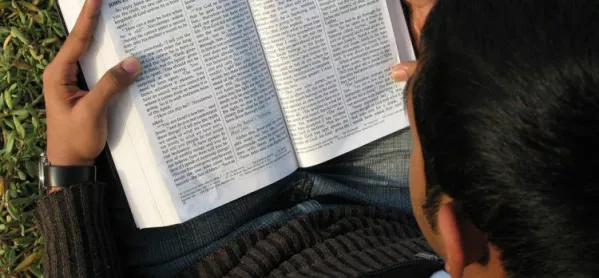Schoolchildren in English state schools would no longer sing hymns, say prayers or be directed towards belief in any particular religious faith, under radical new proposals made by a group of academics today.
The proposals, outlined in a pamphlet published by the Philosophy of Education Society of Great Britain, are targeted at policymakers, politicians and leading schools practitioners.
They advocate a new system of civic, religious, ethical and moral education (to be known as CREaM) which would encourage pupils to think for themselves and foster an attitude of respect and concern for others - rather than being told they are duty-bound to follow any religion.
The pamphlet, “How to regulate faith schools,” was written by Professor Adam Swift, of University College London, as well as University of Warwick academics Dr Ruth Wareham, Professor Matthew Clayton and Professor Andrew Mason.
They state: “There should be no classes that encourage children to believe that they are duty-bound to worship God, that Jesus is the son of God whose crucifixion and resurrection redeemed mankind, that Allah is the one true God and only He is worthy of worship, or that there is no God and human beings can only find ethical and spiritual fulfilment without belief in a divinity.
“It is important for individuals to have the opportunity to decide for themselves what kind of life to live and to reflect and act upon those decisions in a well-informed manner.”
The proposals would also apply to state-funded faith schools which would be barred from holding acts of collective worship, which are currently compulsory during normal school hours. However, the pamphlet does not propose the abolition of faith schools altogether, and advocates that they should still be able to operate under their own “ethos,” provided they do not compromise children’s ability to decide for themselves on religious belief.
Meanwhile, private schools would need to follow the same rules as those in the state sector in order to continue to qualify for the tax benefits of charitable status.
The proposal to ban collective worship in schools puts the authors at odds with legal requirements, in place since The Butler Education Act of 1944.
At the same time, however, the pamphlet proposes a new requirement for all schools to teach “non-directive” religious education within a broader curriculum of CREaM.
The academics also state in the pamphlet: “Some will doubtless regard our proposals as reflecting a secular worldview, suspecting us of being hostile to religious believers…But schools that do not direct children towards particular religions are not anti-religious, and antipathy towards religion plays no role in our thinking.”
The group’s research is part of a wider series of pamphlets by the society and was funded by the Spencer Foundation.




